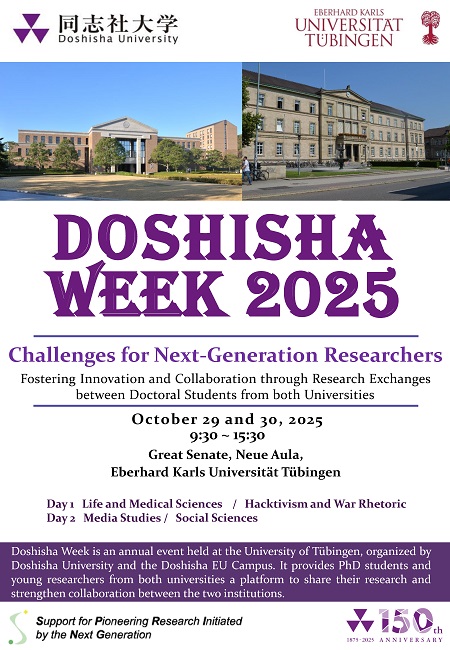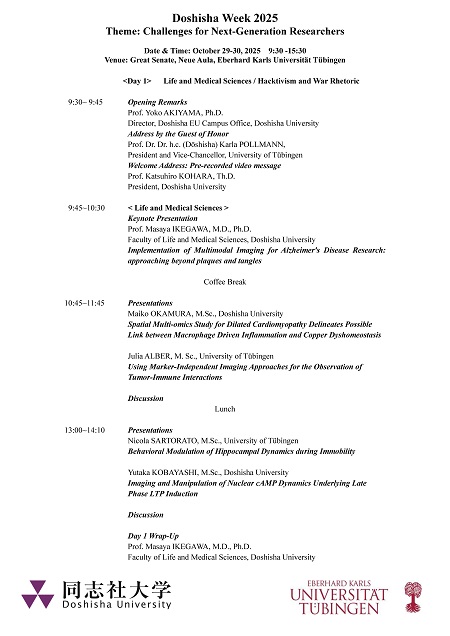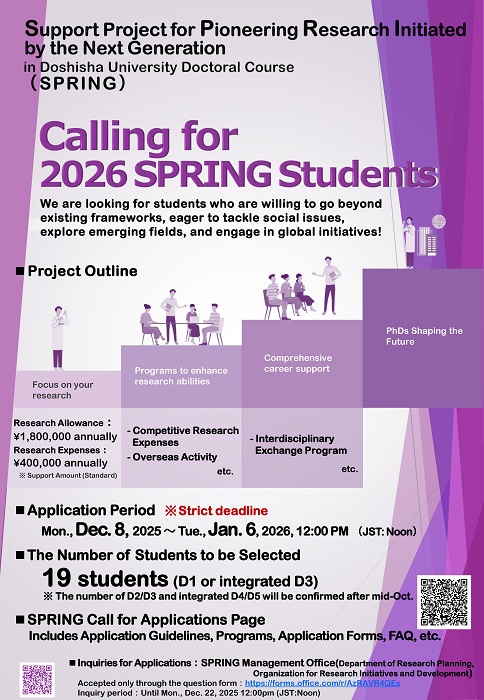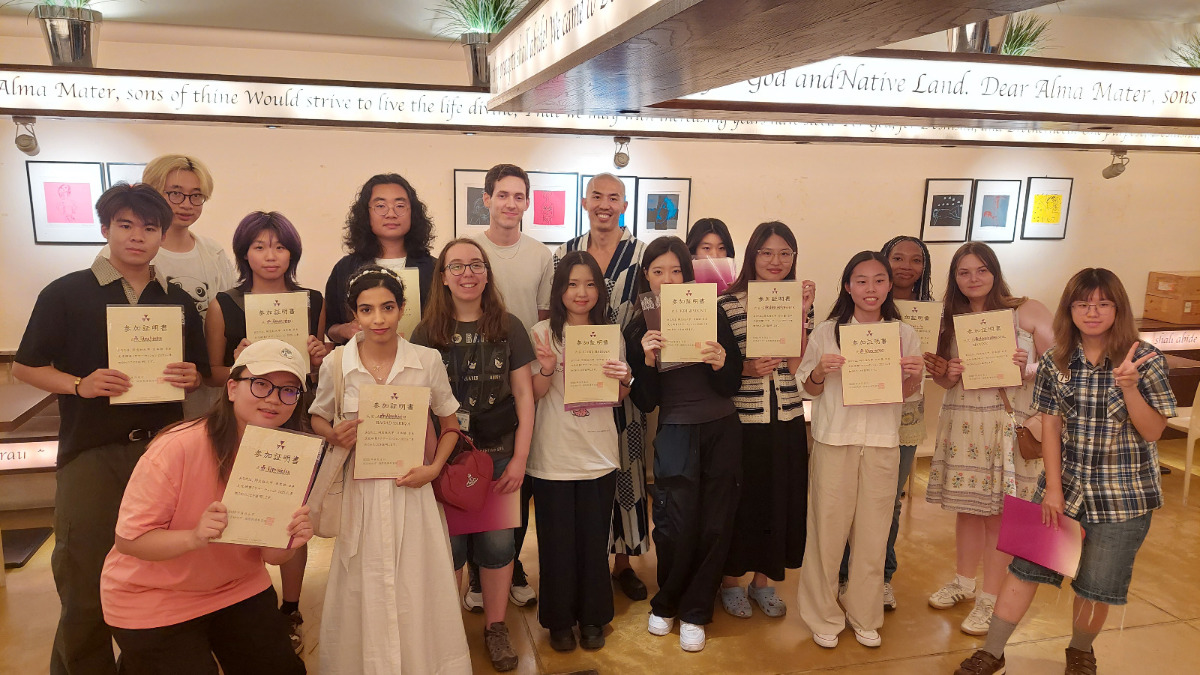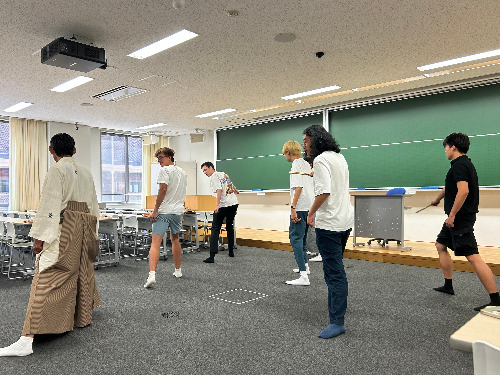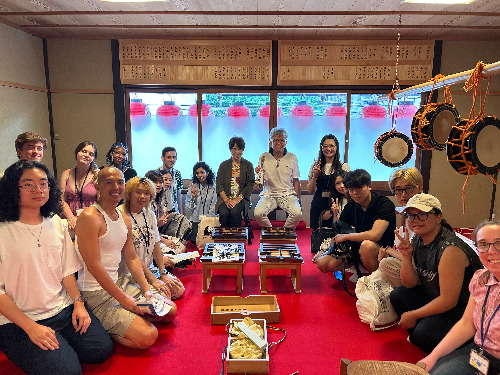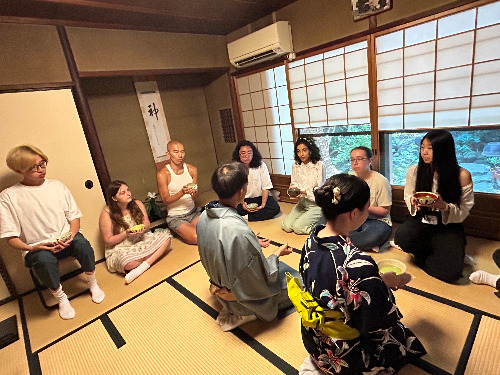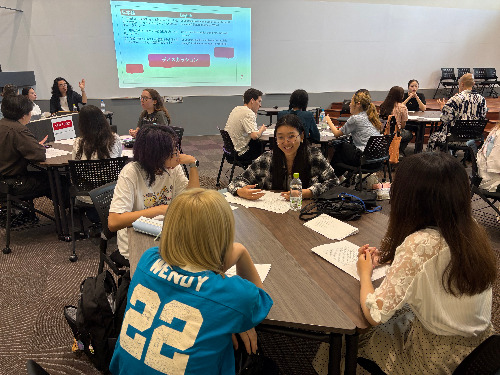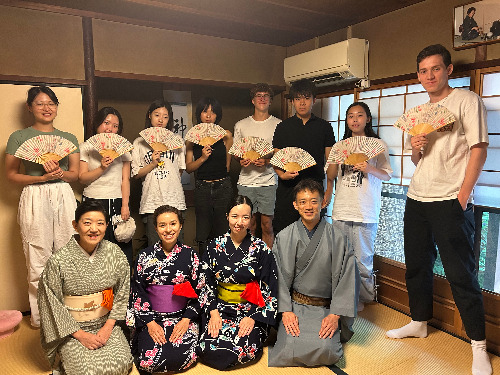Associate Professor Mika Ishino from the Faculty of Global and Regional Studies and Associate Professor Eunseok Ro from Pusan National University, South Korea, explored how feedback becomes “reflect-able” moments that guide student teachers’ learning in language education.
Feedback is central to teacher education, yet little is known about how it can be delivered in real-time. A new study of language teacher education in Japan and South Korea shows how educators transform feedback into “reflect-ables”: concrete moments from microteaching that prompt reflection and guide professional growth. The researchers, using conversation analysis, demonstrate how feedback practices not only help assess teaching but also create opportunities for developing classroom interactional competence.
Reference
Ro, Eunseok and Ishino, Mika, Creating “Reflect-ables”: A Conversation Analytic Study of Feedback Practices in Language Teacher Education, TESOL Quaterly, October 2025.
DOI: https://doi.org/10.1002/tesq.70035
For more details, please see the website of Organization for Research Initiatives and Development, Doshisha University.
https://research.doshisha.ac.jp/news/news-detail82/
This achievement has also been featured in the “EurekAlert!.”
https://www.eurekalert.org/news-releases/1101931
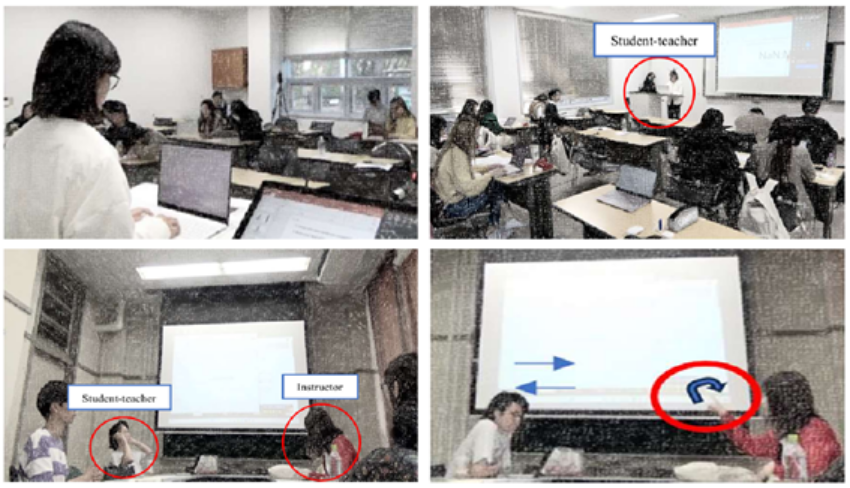
Image Title: Turning Feedback into “Reflect-Ables”: Conversation Analysis of Teacher Education in Japan and South Korea
Caption: Teacher educators guide student reflection by transforming specific microteaching moments into “reflect-ables,” using gestures, notes, and interactive discussion to co-construct professional learning opportunities. This approach highlights how feedback functions as a collaborative, reflective practice rather than a simple evaluation.
Credits: Eunseok Ro from Pusan National University, South Korea, and Mika Ishino from Doshisha University, Japan
Image License: Original content
Usage restrictions: Credit must be given to the creator.
| Contact |
|---|
Fear of supernatural punishment could reduce environmental harm and promote sustainable relationships between human societies and nature
Supernatural beliefs have long shaped how people interact with nature.
A research group including Assistant Professor Shota Shibasaki from Doshisha University has revealed, using evolutionary game theory, that the fear of supernatural punishment can help deter the overexploitation of natural resources. The study suggests that, under appropriate conditions, such beliefs can encourage sustainable behavior and complement modern conservation efforts. These findings provide valuable insights into environmental education, conservation strategies, and policy design in culturally diverse societies.
Reference
Shota Shibasaki, Yo Nakawake, Wakaba Tateishi, Shuhei Fujii, and Ryosuke Nakadai, Fear of supernatural punishment can harmonize human societies with nature: an evolutionary game-theoretic approach, Humanities and Social Sciences Communication, Oct 2025,
DOI :10.1057/s41599-025-05734-7
For more details, please see the website of Organization for Research Initiatives and Development, Doshisha University.
https://research.doshisha.ac.jp/news/news-detail-81/
https://www.eurekalert.org/news-releases/1101294
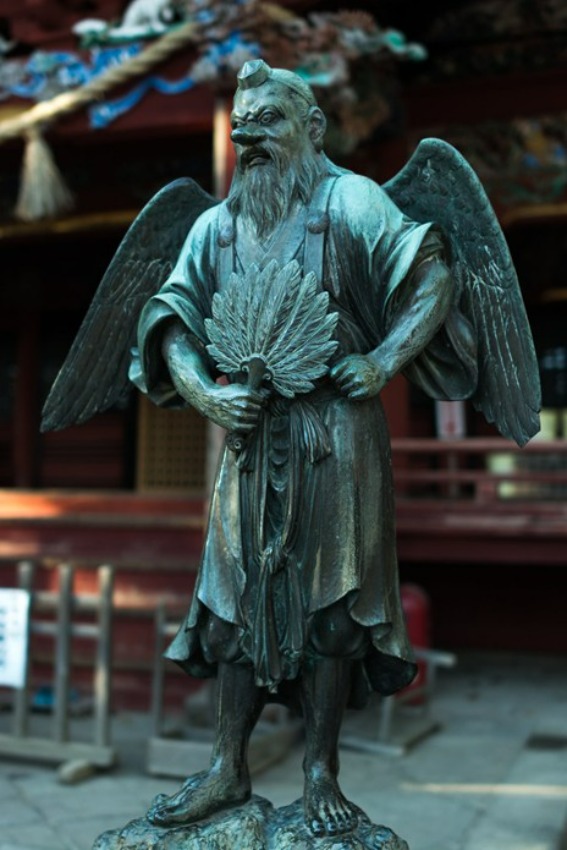
Title: Tengu – A Class of Mountain Spirits of Japanese Folklore
Caption: In Japanese folklore, tengu are supernatural beings that inhabit mountains and deep forests. Traditionally seen as guardians of these sacred spaces, they punish those who show arrogance, disrespect nature, or defile holy sites. Tengu are both feared and revered, reminding people to live in harmony with the natural and spiritual worlds.
Credits: Yoshikazu TAKADA from Openverse
Image license: CC BY 2.0
Image link:
https://openverse.org/image/c336e7a3-d307-4506-b4ca-a8d56314b2c6
・Usage restrictions: Credit must be given to the creator.
| Contact |
|---|
Doshisha Week 2025: Challenges for Next-Generation Researchers!
~Aiming for further innovation and collaboration through research exchange between Doshisha University and the University of Tübingen~
On October 29 and 30, 2025, we will hold the Doshisha Week 2025 event at the Great Senate, Neue Aula, University of Tübingen, Germany.
‘Doshisha Week’ is an exchange event hosted by Doshisha University and Doshisha EU Campus (at the University of Tübingen). It is held regularly with the cooperation of the University of Tübingen.
The following six doctoral students (in red) from Support Project for Pioneering Research Initiated by the Next Generation in Doshisha University (SPRING) will participate in AY2025. They will present their research to doctoral students at the University of Tübingen and have research exchanges with the researchers there.
Main Programs
Wednesday, October 29, 9:30 AM to 3:30 PM (CEST)
<keynote presentation>
Prof. Masaya IKEGAWA, M.D., Ph.D.(Graduate School of Life and Medical Sciences)
Implementation of Multimodal Imaging for Alzheimer's Disease Research:
Approaching beyond Plaques and Tangles
<PhD Student Presentations>
Maiko OKAMURA (Graduate School of Life and Medical Sciences・D1)
Spatial Multi-omics Study for Dilated Cardiomyopathy Delineates Possible Link
between Macrophage Driven Inflammation and Copper Dyshomeostasis
Julia ALBER(Tübingen/ NMI Natural and Medical Sciences Institute)
Using marker-independent imaging approaches for the observation of tumor-immune interactions
<PhD Student Presentations>
Nicola SARTORATO(Tübingen/ Institute of Neurobiology)
Behavioral Modulation of Hippocampal Dynamics during Immobility
Yutaka KOBAYASHI (Graduate School of Life and Medical Sciences・D2)
Imaging and Manipulation of Nuclear cAMP Dynamics Underlying Late Phase LTP Induction
<PhD Student Presentations>
Maksym YAROSHENKO (Graduate School of Global Studies・D3)
Hacktivism as a Tool to Conduct Cyber and Information Operations
<Discussion>
Dr. Dmytro YAGUNOV (Tübingen)
Dr. Tetjana MIDJANA (Tübingen)
Thursday, October 30, 9:30 AM to 3:30 PM (CEST)
<keynote presentation>
Prof. Dr. Susanne MARSCHALL (Tübingen/Institute of Media Studies)
Moving Pictures – Touching Sounds
Past, Present and Future of Film and Cinema
<PhD Student Presentations>
Junji ADACHI (Graduate School of Culture and Information Science・D1)
Quantitative Analysis on Objectivity of Personal Color Classification
Susanne SCHULTE (Tübingen/Institute of Media Studies)
The Oceanic Other in Animated Aquatic Eco-Cinema (AAEC):
A Feminist and Decolonial Analysis
<PhD Student Presentations>
Jan-Felix KLUMPP (Tübingen / English Studies)
Reproduction of Rhyme and Metre in LLM-Generated Translations of Poetry
Wenjing GUO (Graduate School of Social Studies・D3)
Problems and Dilemmas of Introducing AI Translation in the Translation
Industry: Case Studies of Translation Companies in 2024
<PhD Student Presentations>
Nehal KHAN(Graduate School of Global Studies・D3)
Populism and Islamization, in Post-Colonial Pakistan: Struggle for National Identity
Ronja HERRSCHNER (Tübingen/ Institute for Political Science)
Justifications of Backsliding
| Contact |
|---|
We are looking for students who are willing to go beyond existing frameworks, eager to tackle social issues, explore emerging fields, and engage in global initiatives!
Applicants should refer to the following link for details: “Call for Application 2026”.
The link includes: Application Guidelines, Program Details, Application Forms, FAQs, etc.
Applications must be submitted within the application period.
| Application Period | Monday, December 8, 2025 ~ Tuesday, January 6, 2026, 12:00 PM (Japan Standard Time: Noon) 【Strict Deadline】 |
|---|---|
| The Number of SPRING Students to be Selected | 19students (D1 or Third-year in the integrated doctoral program) ※The number of D2 and D3 (Forth and Fifth year in the integrated doctoral program) will be confirmed after mid-Oct. |
| Contact |
|
|---|
From random chaotic vibrations to useful motion—toward new energy-harvesting technologies
Researchers, including Miku Hatatani, a Ph.D. student in the Department of Chemical Engineering and Materials Science, have developed the world’s first symmetric ratchet motor in which a perfectly circular disk spins in one direction when placed on vibrating particles, inspired by molecular motors in biological systems. While conventional rachets rely on asymmetry, this motor emerges from spontaneous symmetry breaking. This discovery highlights a new principle in physics of extracting order from noise, setting the stage for innovative energy-harvesting devices that work on ambient vibrations.
Reference
Hatatani, M., Oguni,J., Yamamoto, D., & Shioi, A., Emergence of a ratchet motor by spontaneous symmetry breaking, Chaos 35,(8), 083102 (2025).
https://doi.org/10.1063/5.0271467
https://research.doshisha.ac.jp/news/news-detail-80/
This achievement has also been featured in the “EurekAlert!.”News Release 11-Sep-2025,
https://www.eurekalert.org/news-releases/1097937
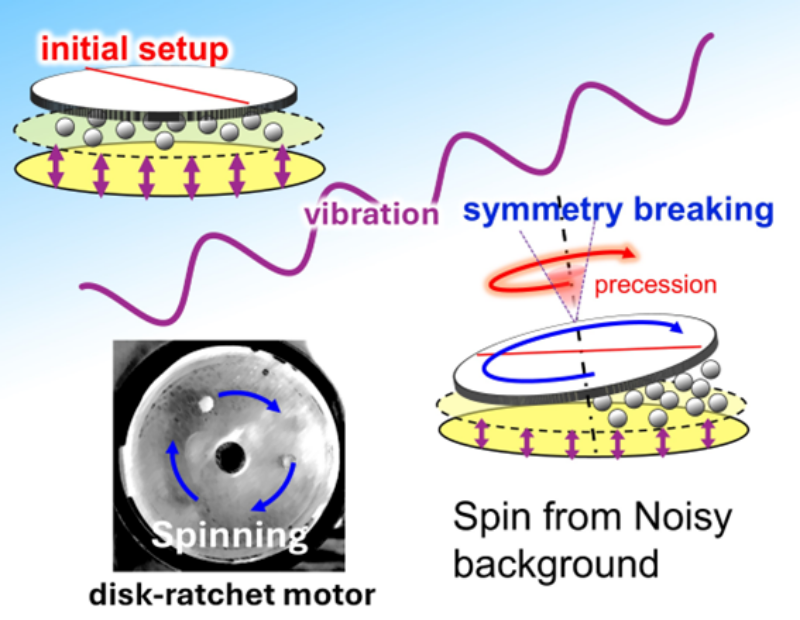
Title: Mechanism of Spontaneous Symmetry Breaking in a Symmetric Ratchet Motor
Caption: In the initial setup, the particles are evenly distributed. But when the disc is placed on the particle bed and subjected to vibration, it spontaneously begins to spin in one direction, demonstrating self-organization arising from breaking of symmetry.
Image credit: Ms. Miku Hatatani from Doshisha University, Japan
Image license: Original content
Usage restrictions: Cannot be used without permission.
| Contact |
|---|
Assistant Professor Shin-nosuke Nishimura, Professor Tomoyuki Koga, and their research team have developed a simulation model to clarify how 4-position substitution in cyclic ketene acetals influences radical ring-opening polymerization.
Cyclic ketene acetals (CKAs) contain carbon atoms and oxygen arranged in a ring-like structure and are ideal for designing degradable polymers. However, the complex reaction pathways and mechanistic factors involved during the polymerization process remain unclear. In a new study from Doshisha University, researchers have developed a simulation model and conducted in-depth nuclear magnetic resonance spectroscopic analyses to determine the critical factors that can influence radical ring-opening polymerization of CKAs.
Reference
Shin-nosuke Nishimura, Marina Uryu, Tomoyuki Koga, Kinetic Model of Radical Ring-Opening Polymerization of Asymmetric Five-Membered Cyclic Ketene Acetals, Macromolecules, 2025, August 19
DOI : 10.1021/acs.macromol.5c01438
For more details, please see the website of Organization for Research Initiatives and Development, Doshisha University.
https://research.doshisha.ac.jp/news/news-detail-79/
https://www.eurekalert.org/news-releases/1096807

Image title: Biodegradable polymers, such as cyclic ketene acetals (CKAs), are key to reducing persistent plastic pollution concerns
Image credit: Geo Lightspeed7 from Openverse
Image source link: https://openverse.org/image/a1296bd2-2c44-40ac-a0f9-b294e37bd7a1?q=biodegradable+plastics&p=83
License type: CC BY-SA 4.0
Usage restrictions: Credit must be given to the creator. Adaptations must be shared under the same terms.
| Contact |
|---|
The Center for Global Education and Japanese Studies(CGJ) hosted“Doshisha Summer Session 2025” for four weeks, from July 8, 2025 to August 5. This year, there were 18 participants from Saudi Arabia, France, United States, United Kingdom, Korea, China, Hongkong, and Taiwan.
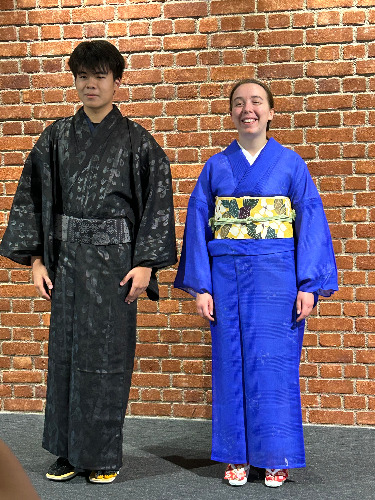 Japanese Kimono Culture
Japanese Kimono Culture
The Japanese language classes were divided into two levels, and lessons were conducted in the areas of grammar, reading comprehension, and oral expression. In addition, in the course "Traditional culture and daily life in Kyoto," ten guest speakers were invited to give lectures about Kyoto’s traditional culture, such as the Gion Festival and Nishijin weaving. The participants also participated in hands-on cultural experiences, including tea ceremony, Aikido, Noh, Zen meditation, Kimono, and Japanese food making.
During the period, more than 40 students from both Doshisha University and Doshisha Women's College of Liberal Arts participated in classes as volunteer study partners, joining in conversation practice and other activities. In the second week of the program, a get-together session with study partners was organized. Participants and study partners made some small groups and discussed about what they would like to do during their stay in Japan. Then they made up a plan and carried them out outside of class hours. (For example, going to karaoke, eating sushi, and hanging out wearing yukata.) Through this activity, participants and study partners grew closer and were able to interact actively outside of class.
On the final day, there was an opportunity for deepening what they learned and experienced during the program. Each participant selected topics of interest and gave presentations in Japanese followed by a discussion with study partners.
We received positive feedback from the participants. All participants said they would recommend the program to their friends and juniors, and 92% answered that they could achieve their goals for participating in the program. These responses clearly indicate a high level of satisfaction with this program. Furthermore, 85% of the students expressed an interest to study abroad at Doshisha University, showing that the program has contributed to enhancing the university’s presence.
Looking at the feedback by content, students shared the following comments about the Japanese language classes:
“All the teachers were kind and enthusiastic, and they made learning fun and easy to understand.” “The explanations were clear, and I learned something new every time.” “I gained much more confidence in my Japanese compared to before the program.”
Regarding the course “Traditional culture and daily life in Kyoto”, students commented:
“I was able to deeply experience the history, beauty, and traditional culture of Kyoto. Every class was memorable.” “It was a special experience because the content would have been difficult to learn through self-study.”
Among the classes of “Traditional culture and daily life in Kyoto”, the Gion Festival was a highlight. Participants’ comments on this reflect that they learned the perspective of festival organizers and their dedication. They commented:
“We visited the Ofunehoko float’s preparation place and learned about the behind-the-scenes works and the spirit of festival organizers”. “The unity of the local community in creating the festival truly reflected the characteristics of traditional Japanese culture”
The participants shared the following comments about the program as a whole:
“Thanks to the warm and welcoming atmosphere created by the teachers, I was able to participate with a sense of ease.” “It was a wonderful, once-in-a-lifetime experience.” “I learned a lot, and I am now inspired to study even more.” Some participants said that cultural exchange with study partners motivated them to learn Japanese more. Study partners have also shared that the interactions gained through volunteering in this program provided new insights and motivation for their future studies, indicating that our program served as an opportunity for growth for both participants and study partners.
We aim to improve the program content based on the feedback and provide a program that more accurately meets the needs of the participants.
| Contact |
国際教養教育院事務室 TEL:075-251-3240
|
|---|
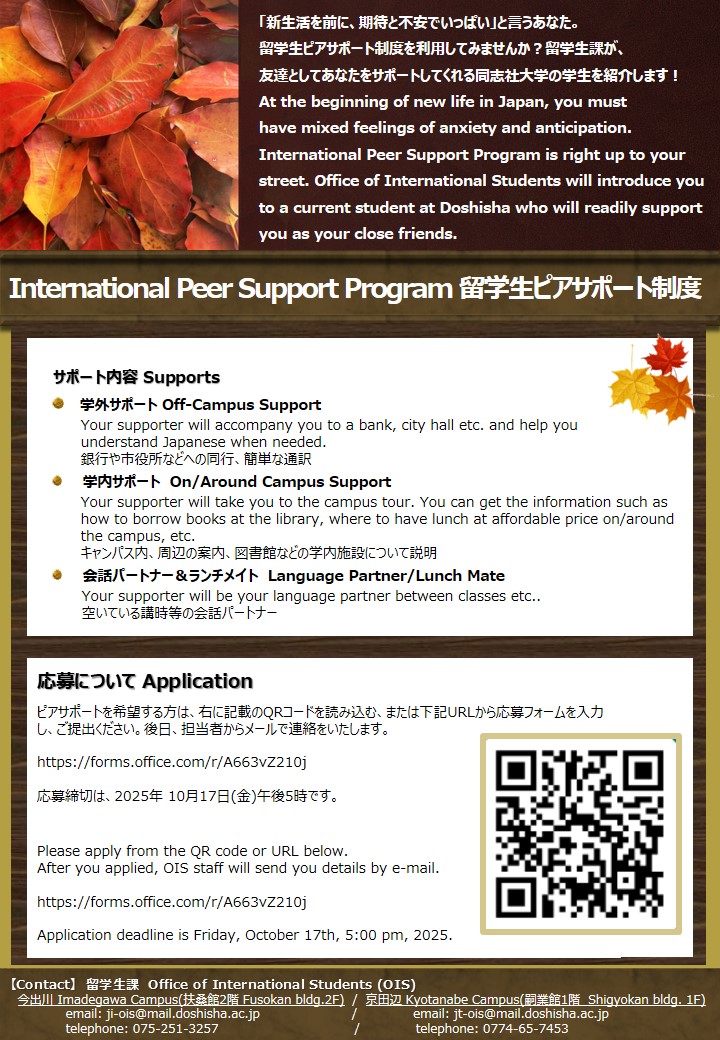
- Details of Peer Support Program for International Students
| Contact |
国際センター 留学生課 TEL:075-251-3257
国際センター 留学生課(京田辺) TEL:0774-65-7453
|
|---|
Through mutual teaching and interaction between international and local students, each person was able to complete a beautiful Mizuhiki!
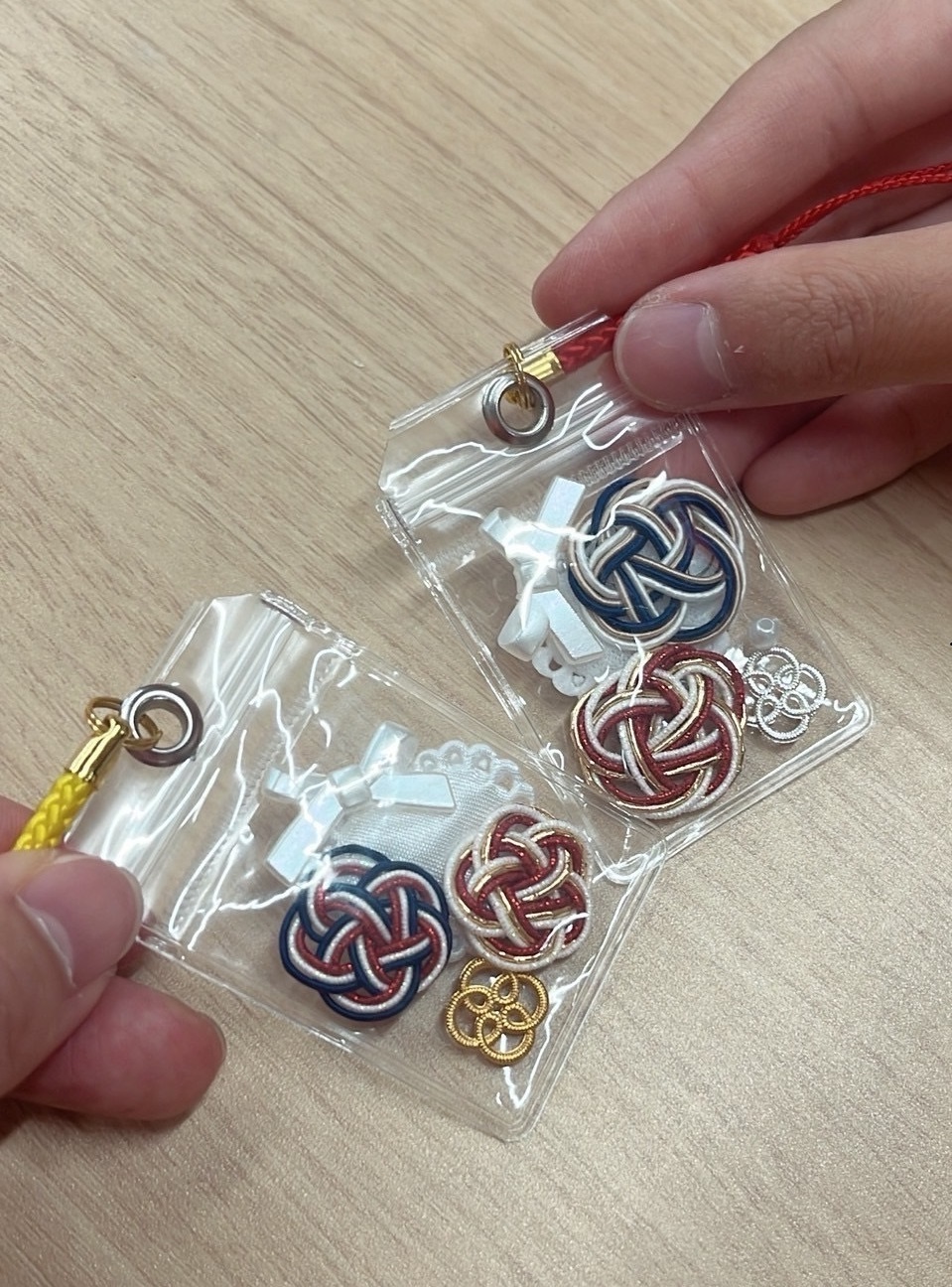
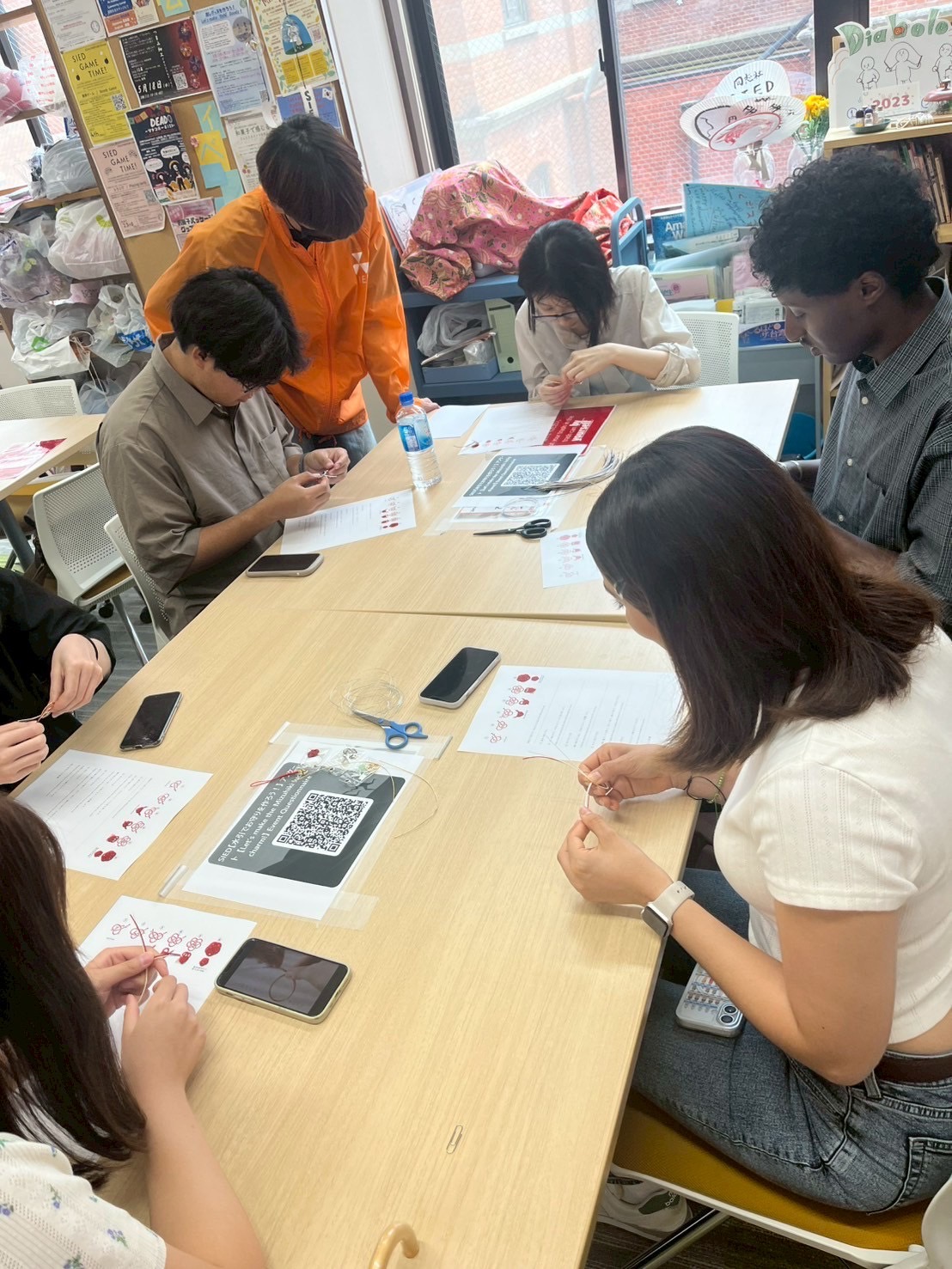
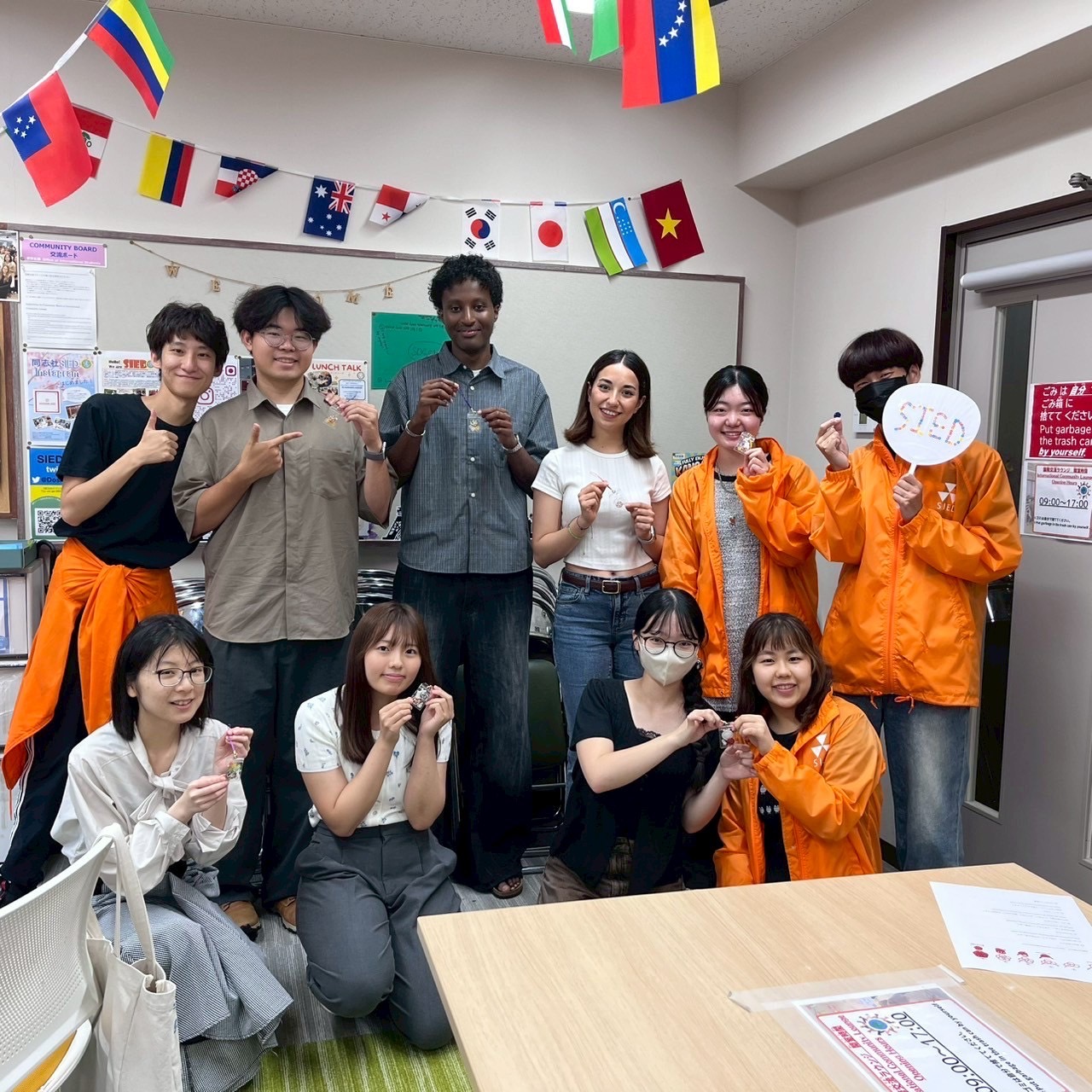
| Contact |
国際センター 留学生課 TEL:075-251-3257
|
|---|
If you’re interested, please check out our official Instagram or the Doshisha University website for future events!

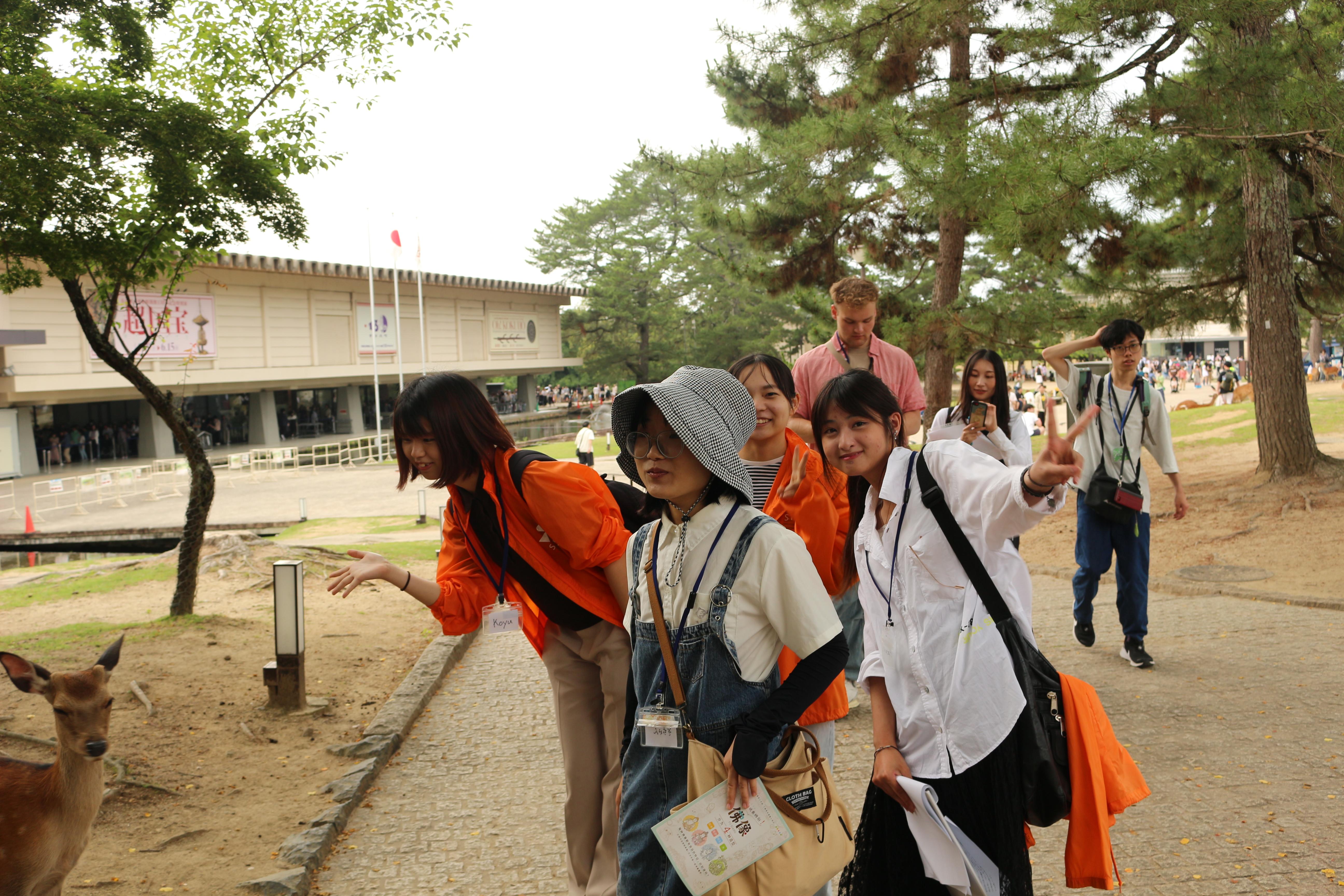


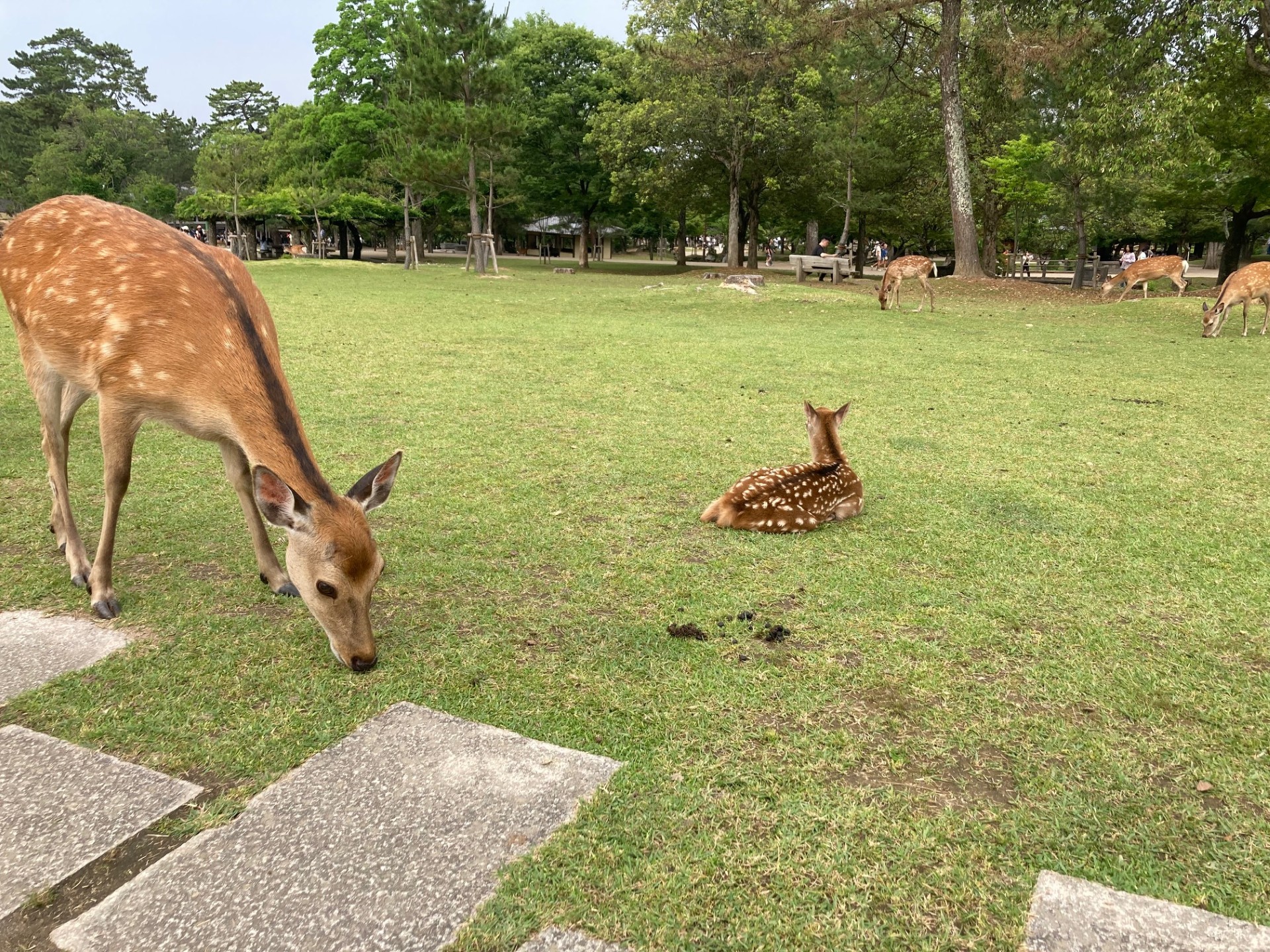
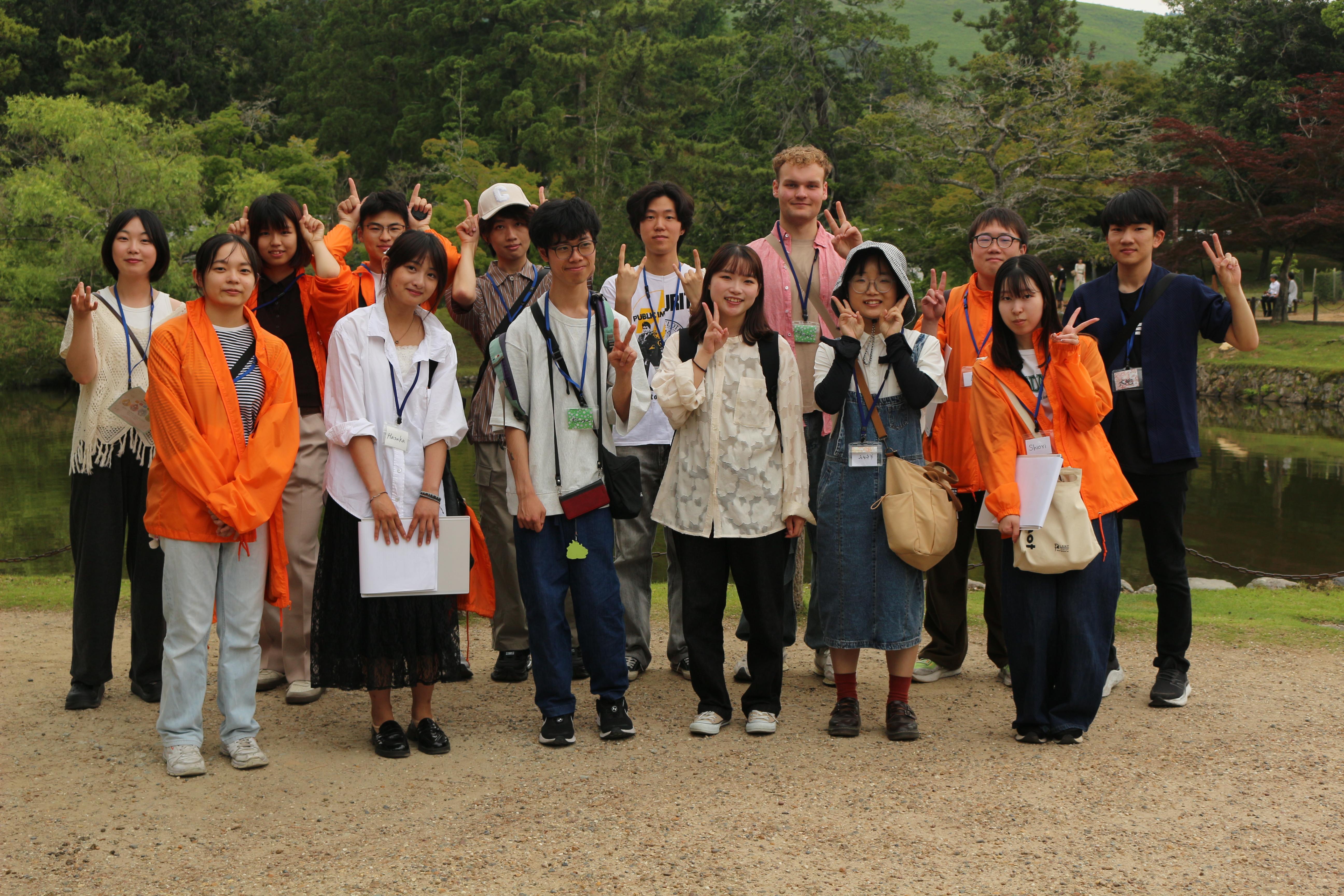
| Contact |
国際センター 留学生課(京田辺) TEL:0774-65-7453
|
|---|
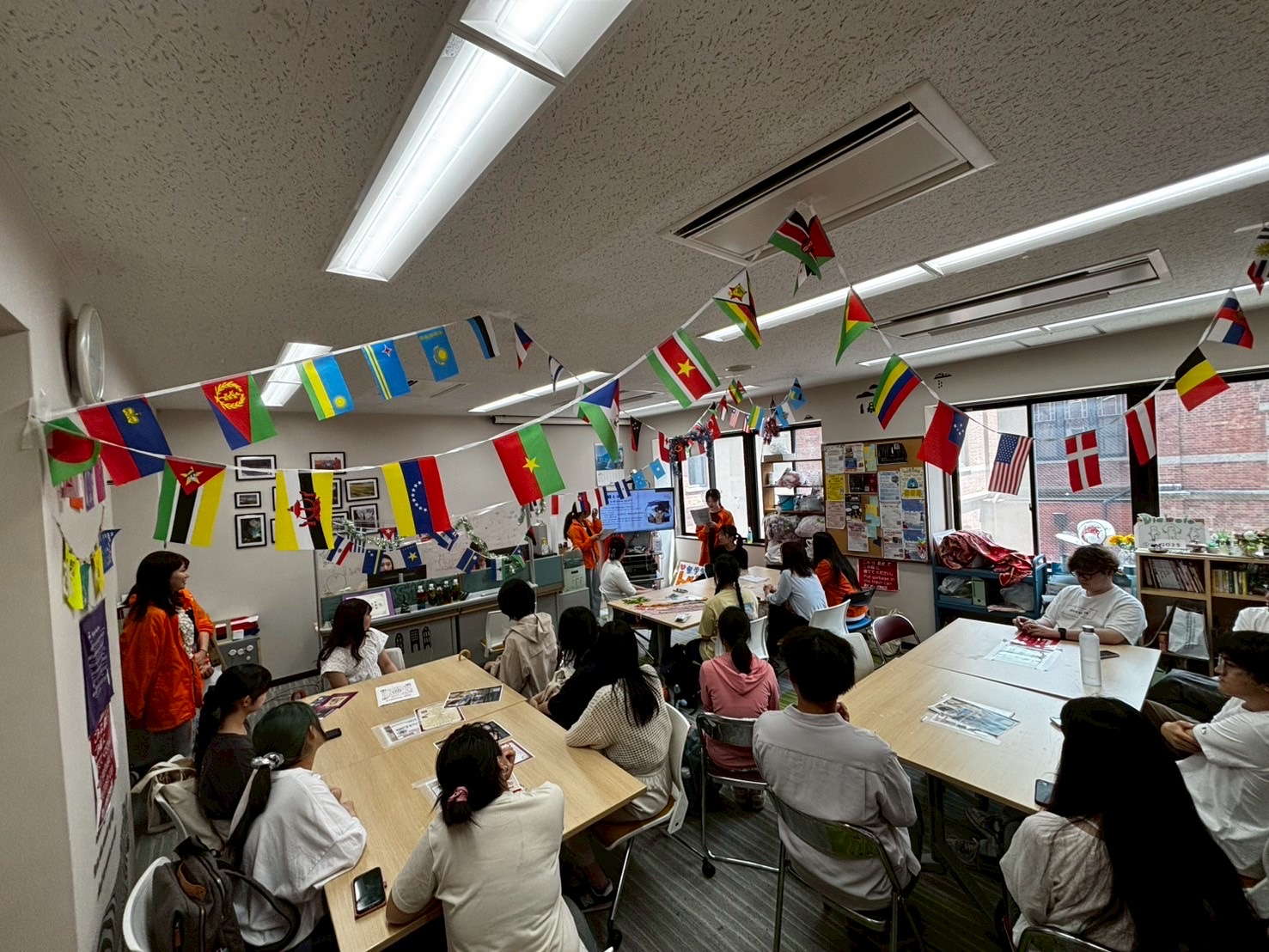
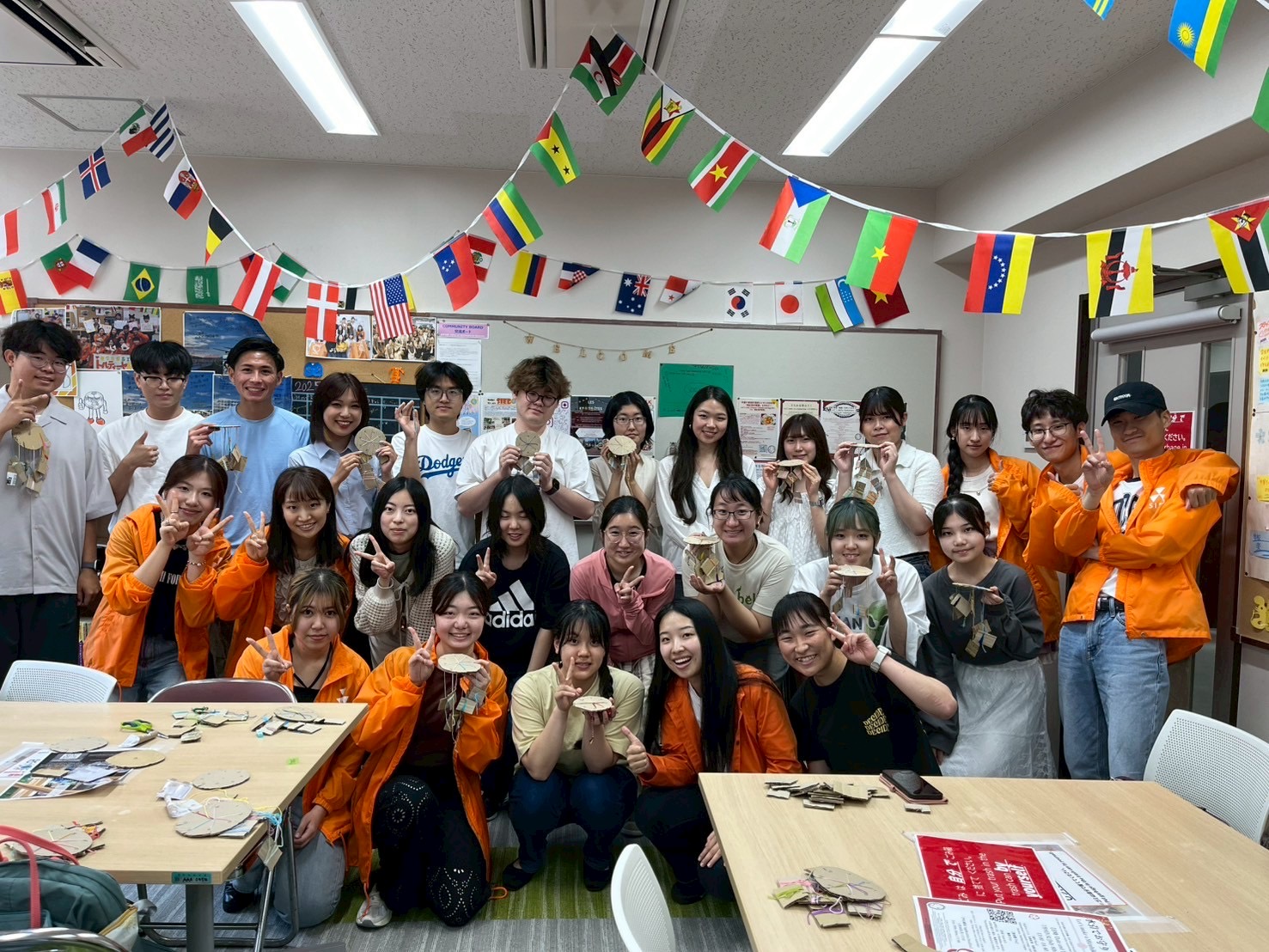
| Contact |
国際センター 留学生課 TEL:075-251-3257
|
|---|
We would be happy if the participants could survive the hot and humid summer in Japan by using the Uchiwa fans they created.
(This event was originally scheduled for July 3rd, but was held on the 4th due to scheduling circumstances.)
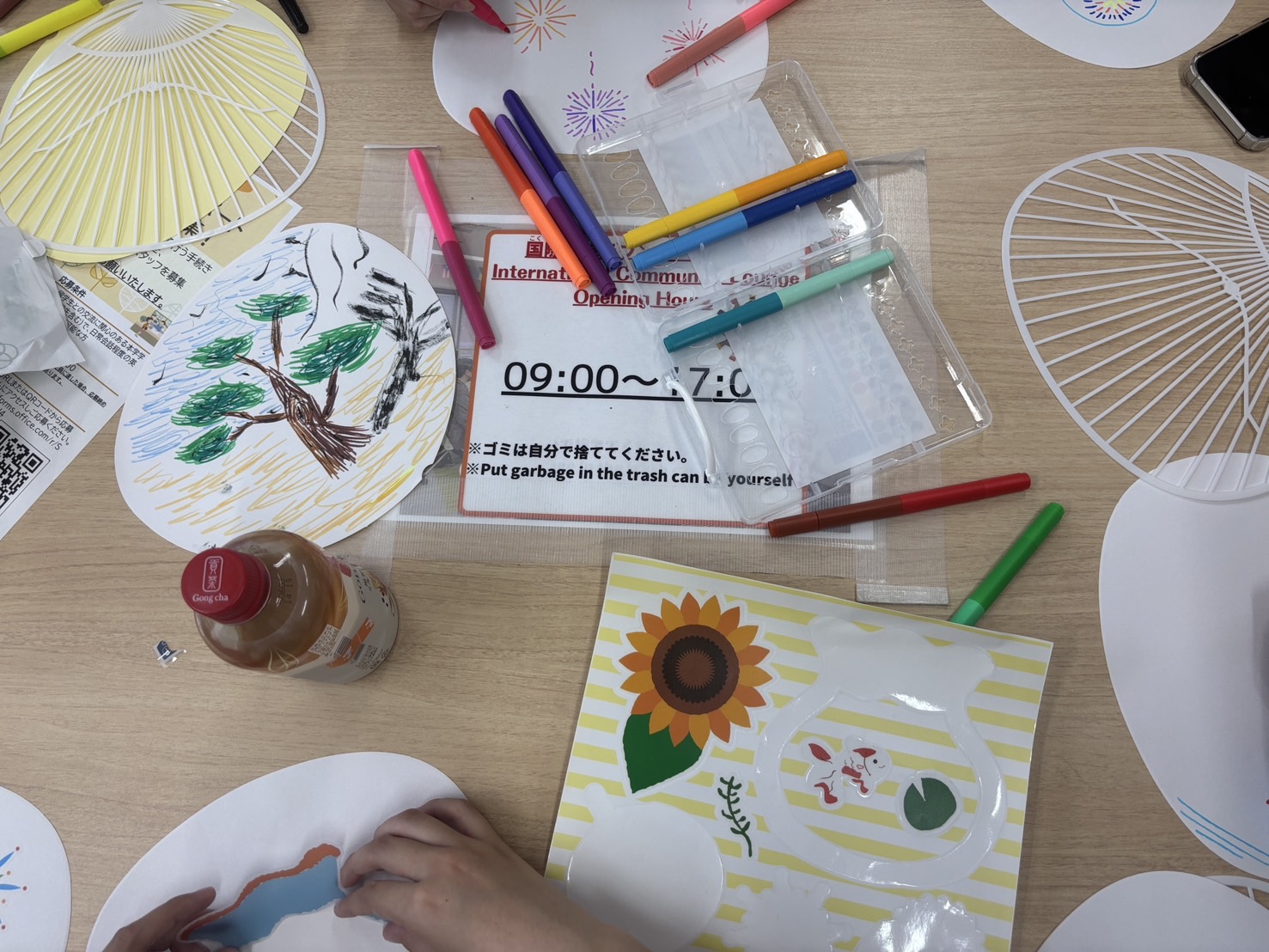
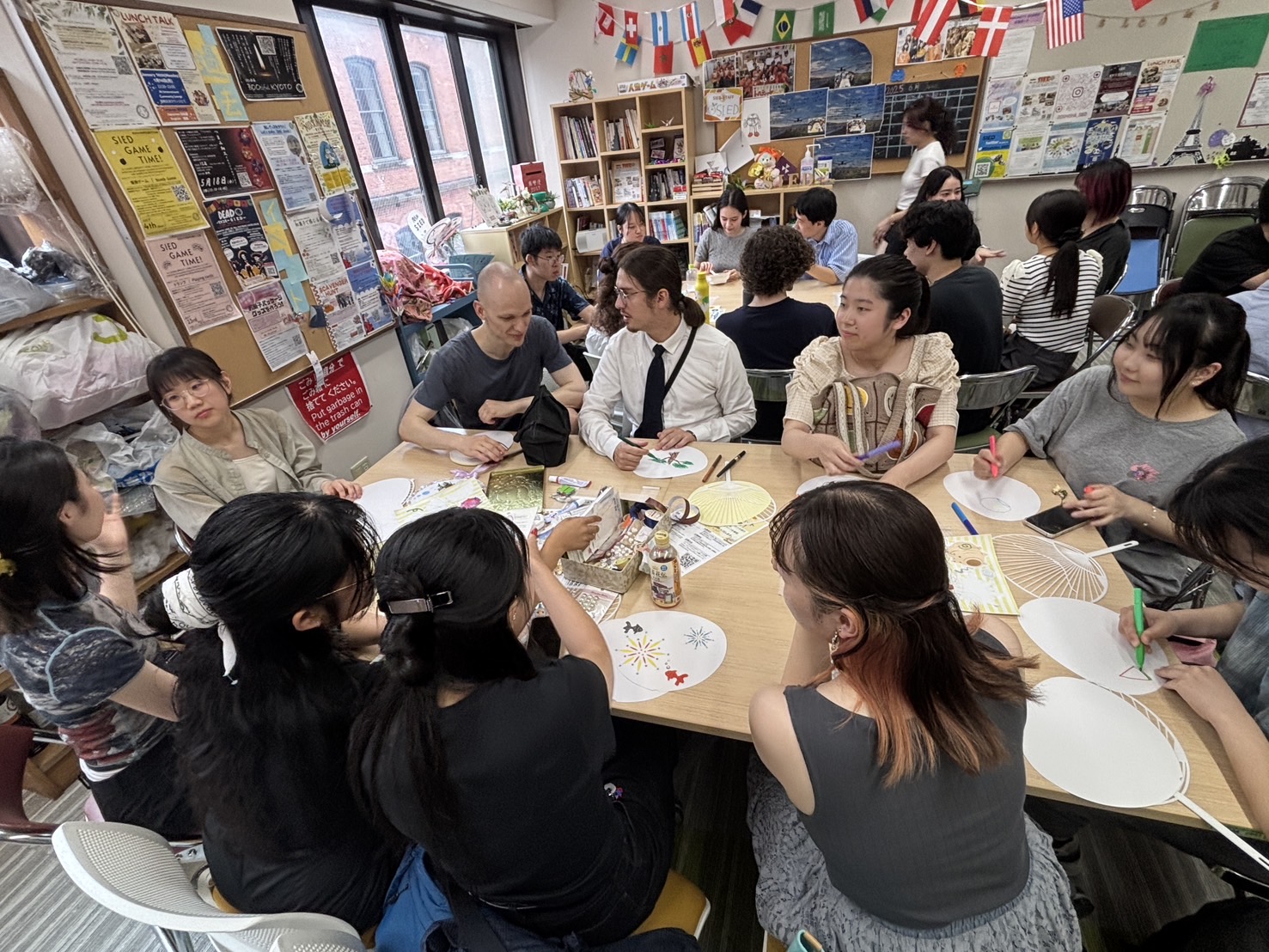
| Contact |
国際センター 留学生課 TEL:075-251-3257
|
|---|
A total of seven people, six international students and one local student, participated in the event and had a great time.
It was a great pleasure to see the participants actively communicating with each other and getting to know each other during the free time for strolling.

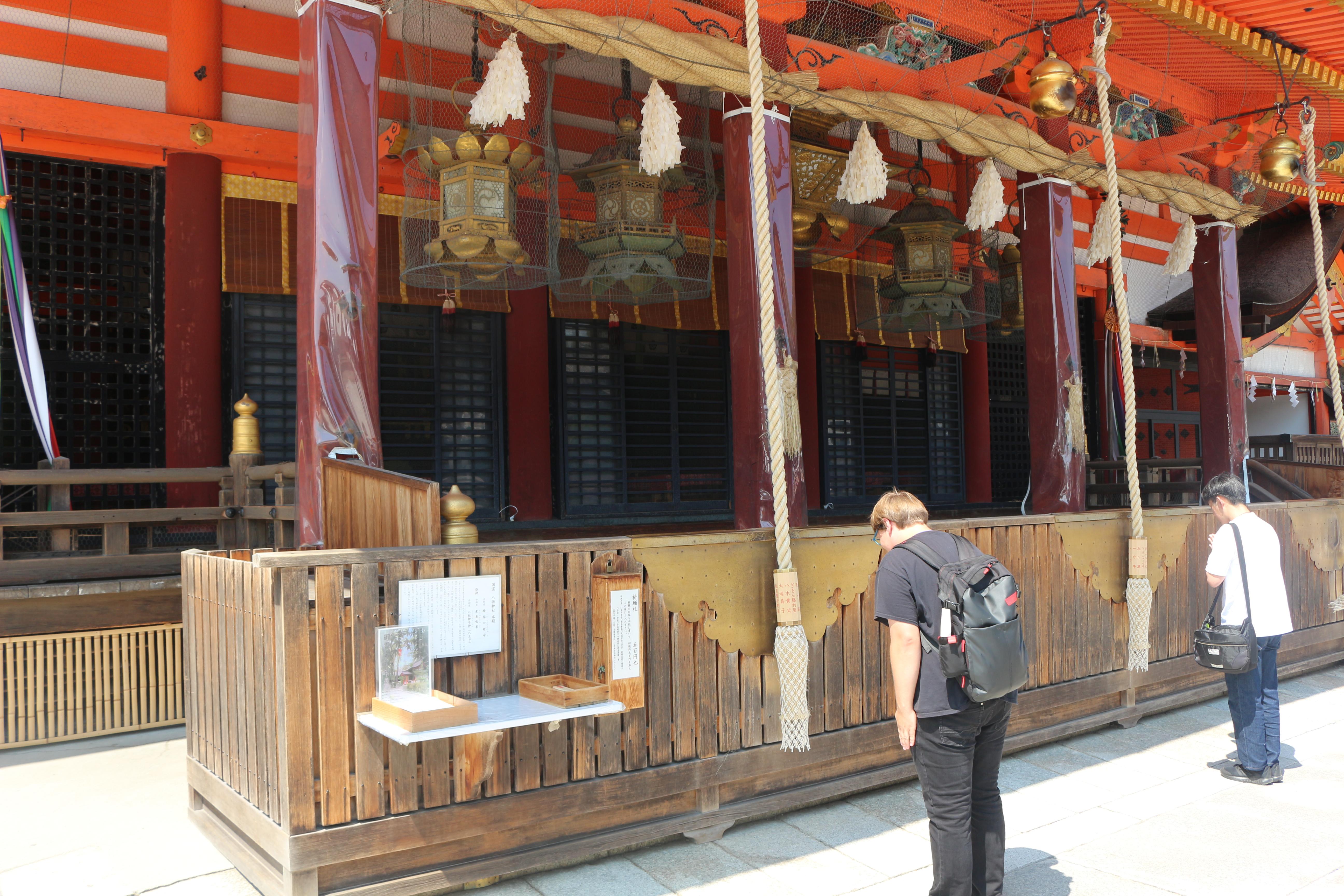


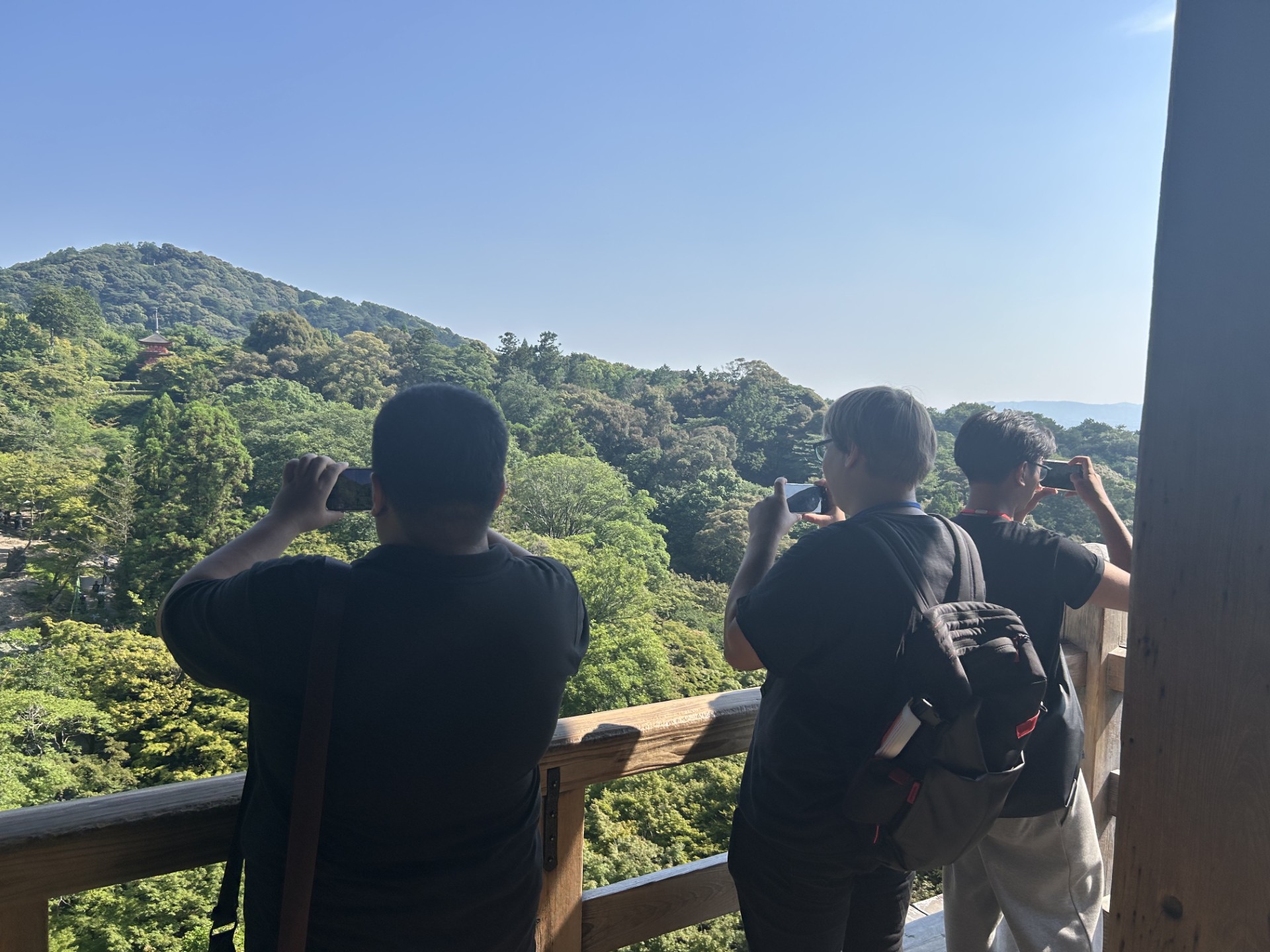
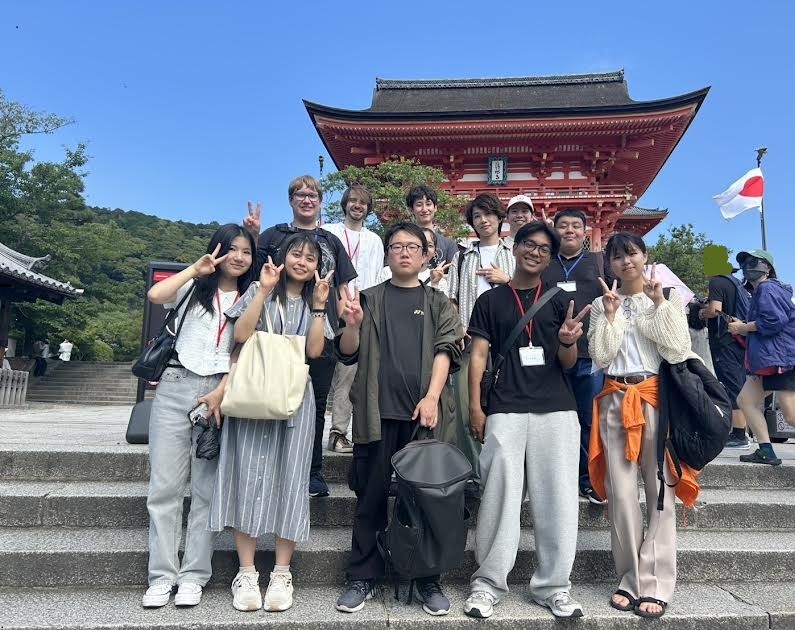
| Contact |
国際センター 留学生課(京田辺) TEL:0774-65-7453
|
|---|
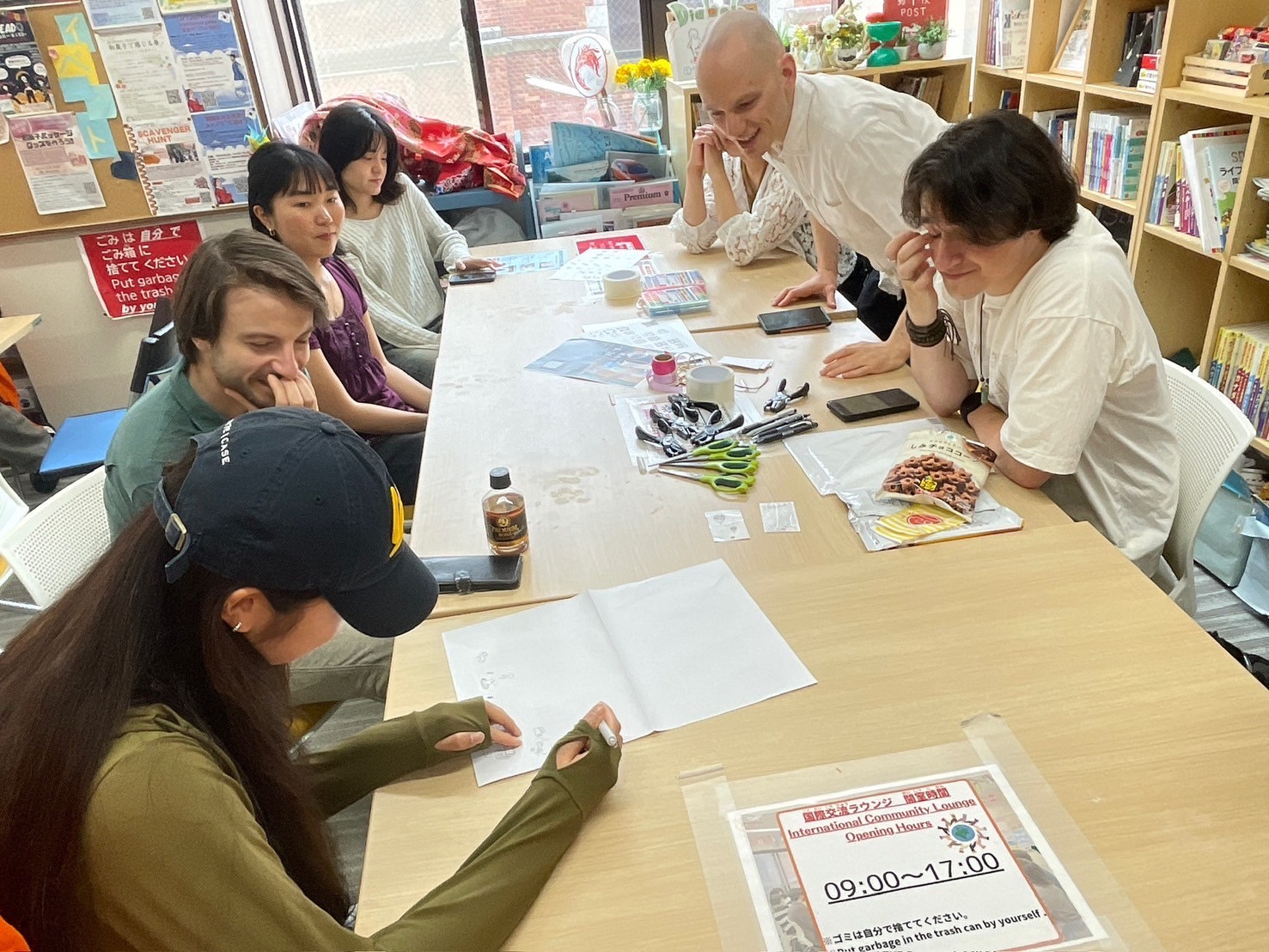
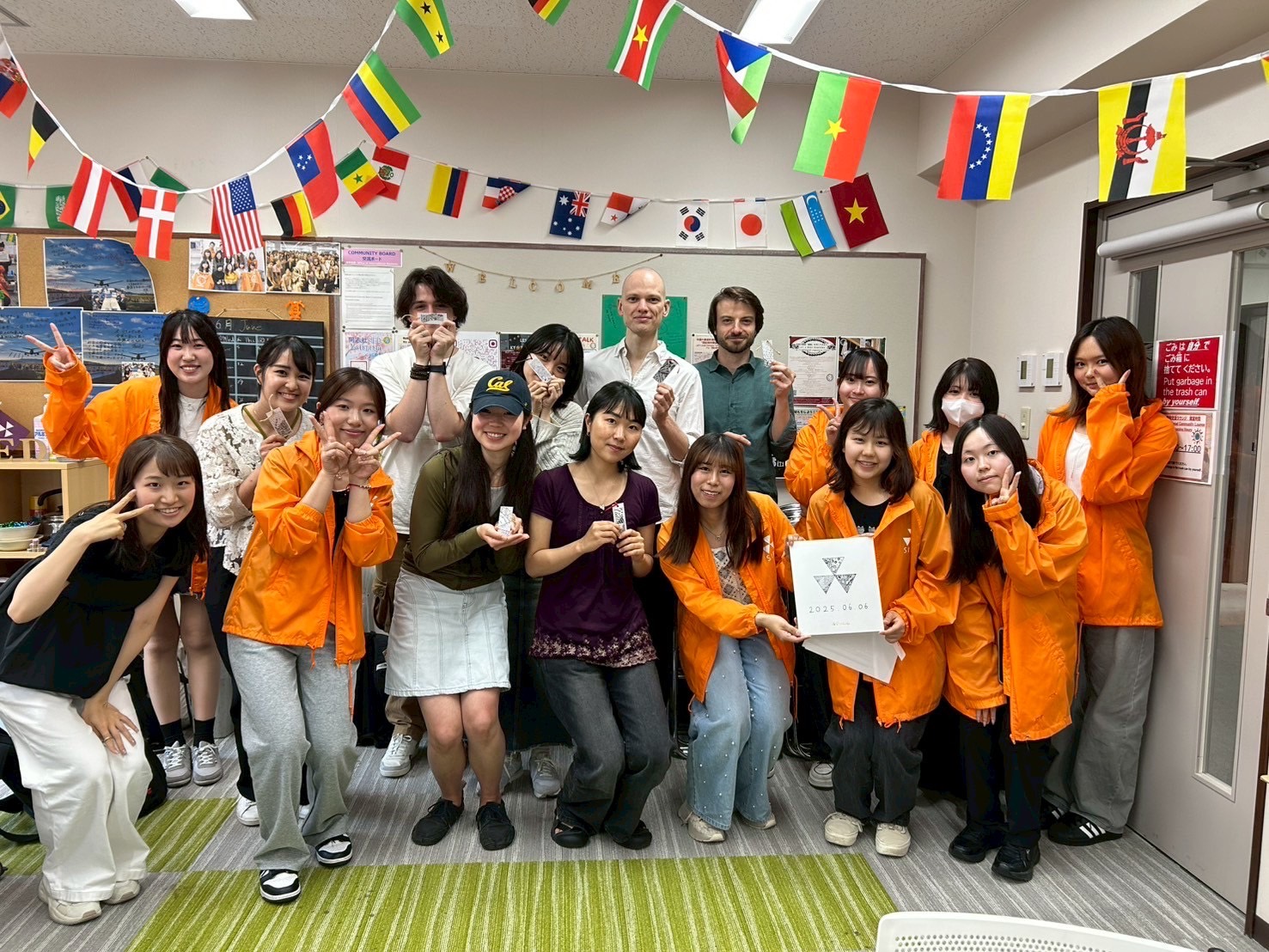
| Contact |
国際センター 留学生課 TEL:075-251-3257
|
|---|
As the shrine we visited is not only beautiful place but also rich in history, we were very pleased that the participants were able to experience a piece of Japanese culture and history through this event.
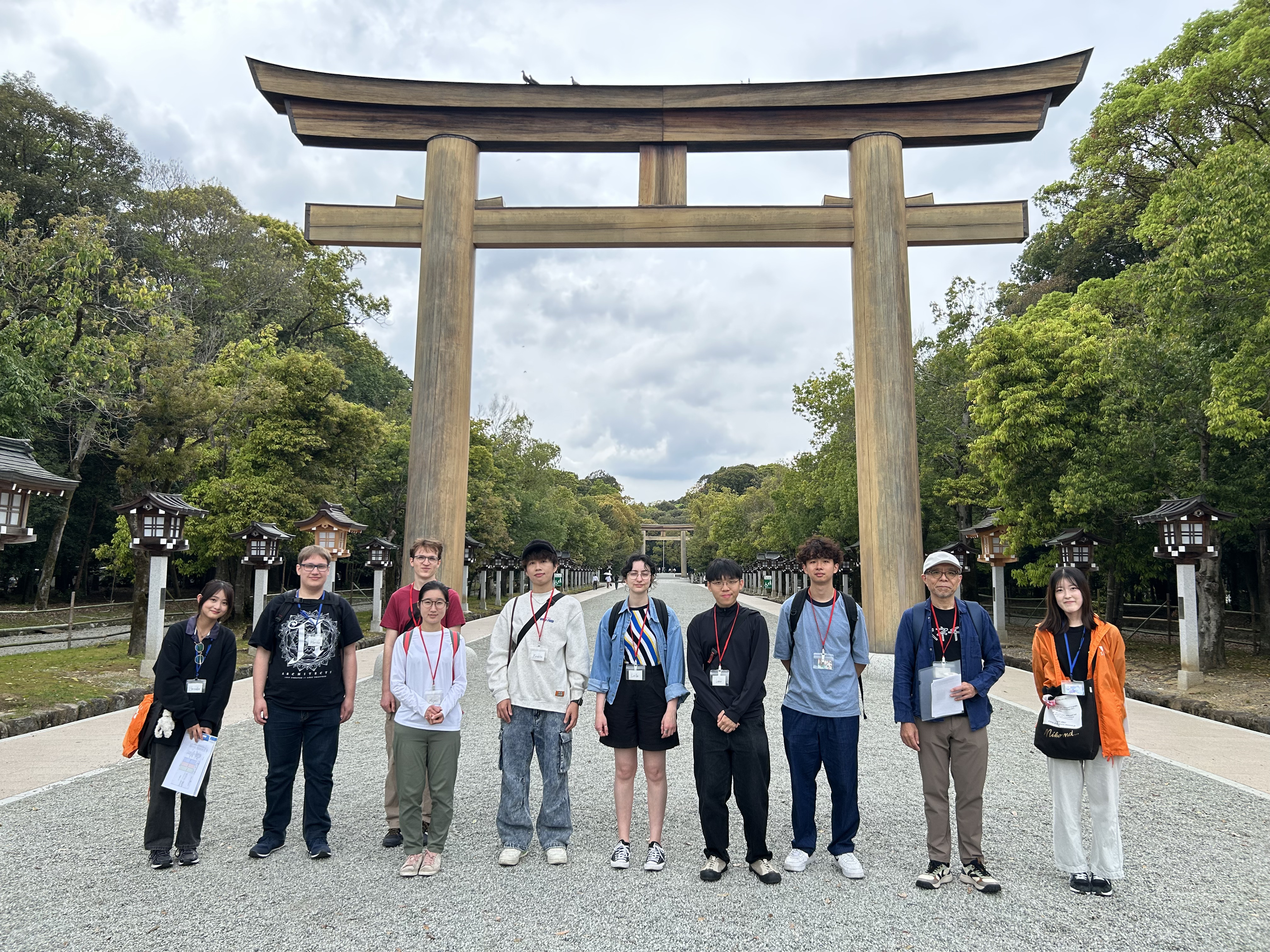
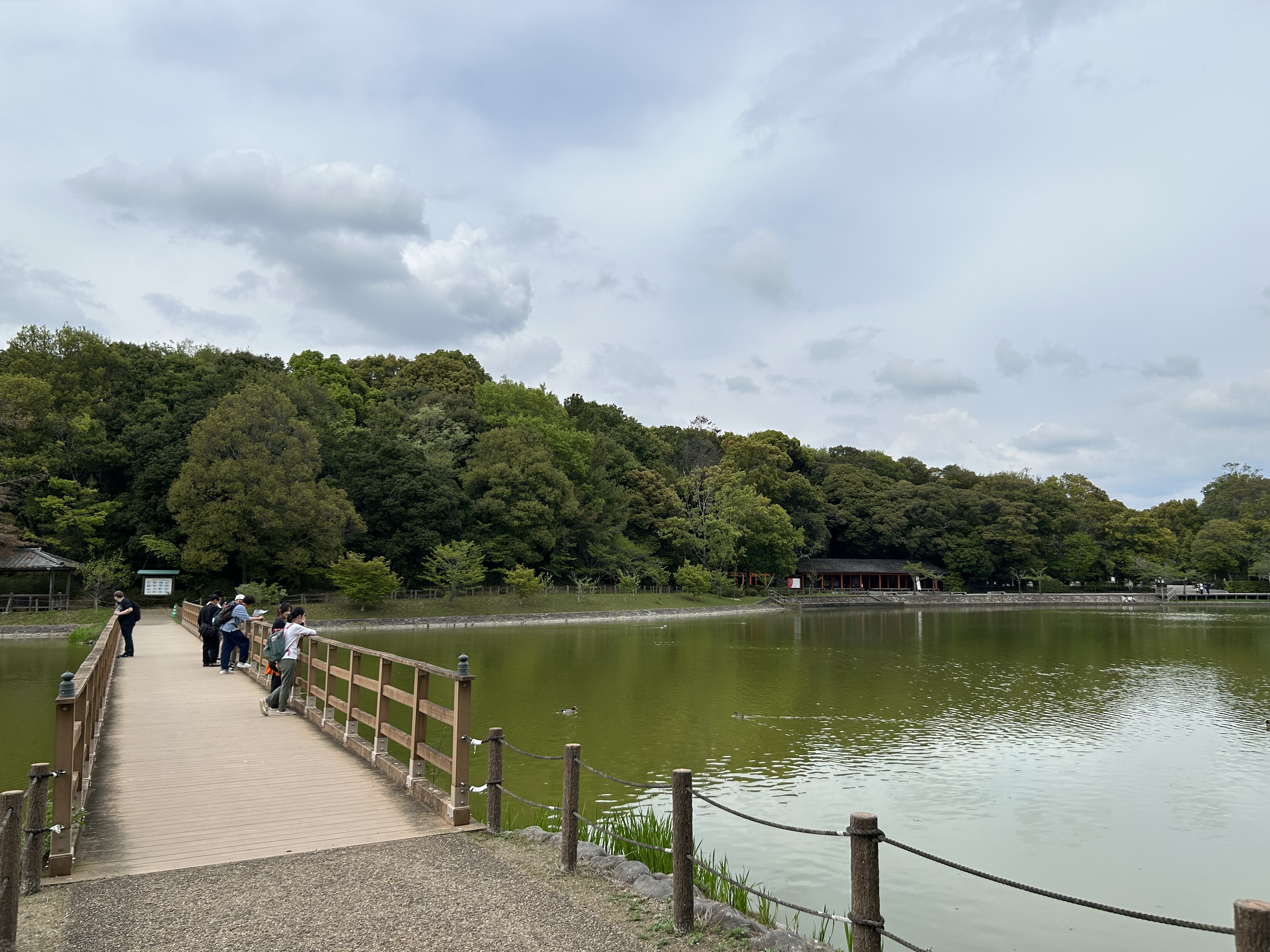
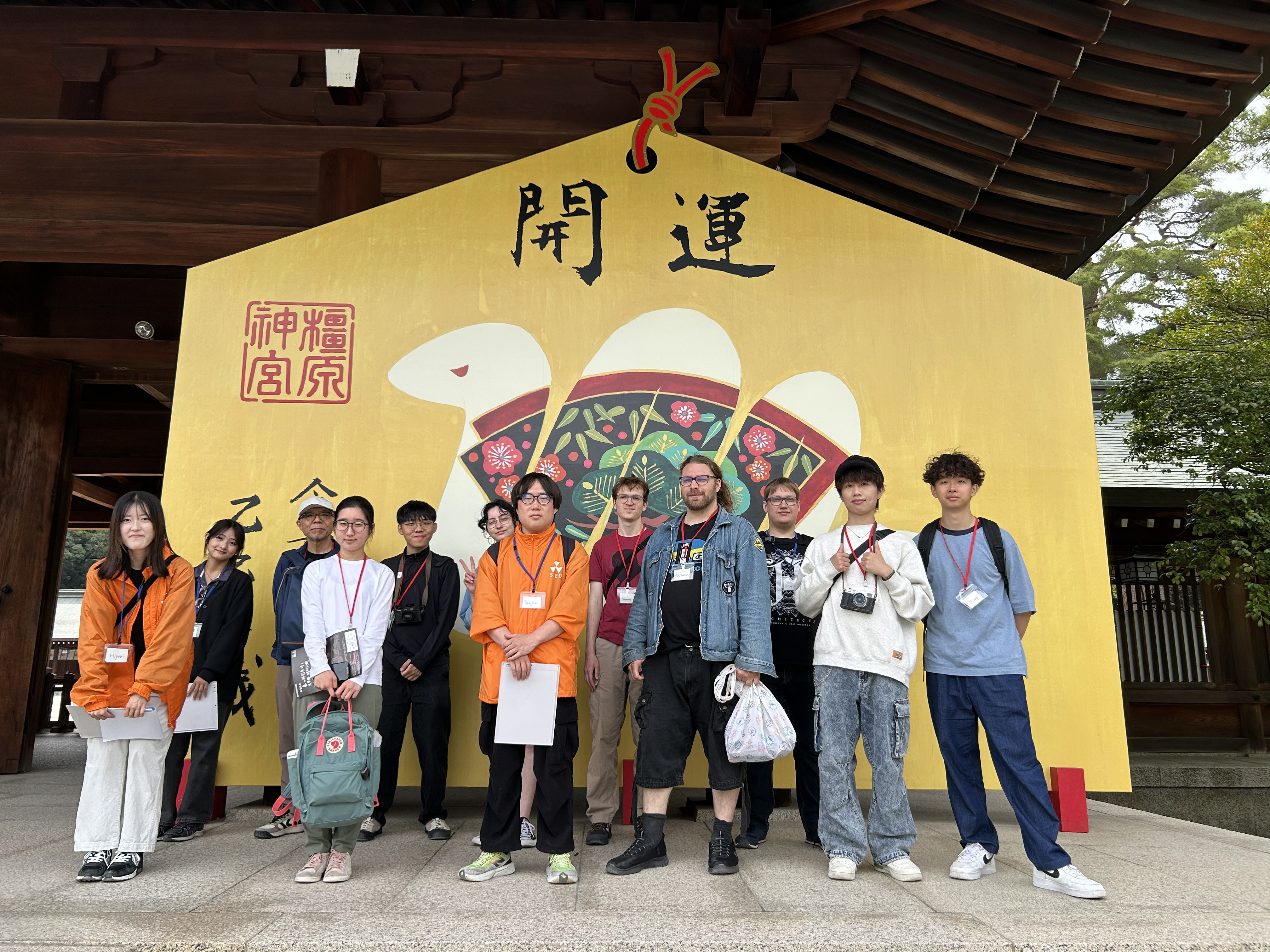
| Contact |
国際センター 留学生課(京田辺) TEL:0774-65-7453
|
|---|
